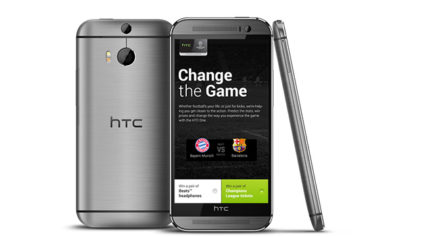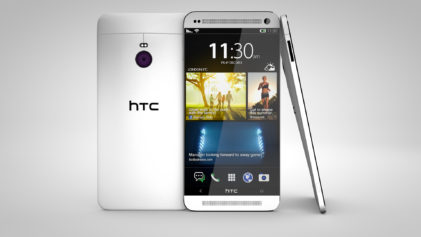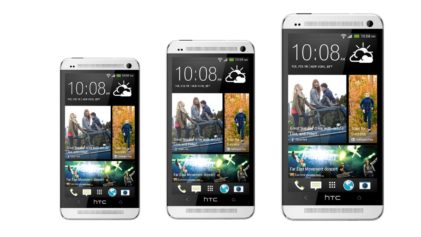There was unfinished business with the HTC One. It was critically praised, yes. In a sea of bland plastic phones, HTC One’s aluminum-clad body stood out like a Mercedes Benz flanked by Toyota Camrys. One touch, and you couldn’t help but think ‘premium.’
Yet to Scott Croyle, who heads up design for HTC, the company could do better. In fact, three months before the original HTC One even launched, Croyle was already getting the wheels turning on improving the unique construction by adding more metal to the successor phone.
The result: the HTC One M8, a more understated, but refined update of the original phone that was unveiled on Tuesday. It’s a thing of beauty, its trademark metal backing extended to wrap around the sides and up to the glass, arcing with the graceful curve of an aircraft wing.
Once a high-flyer in the mobile world pushing the industry with innovative designs – it was the company that created the first Android phone, the G1 – HTC has long since ceded any semblance of a leadership role to Samsung Electronics, whose own powerhouse Galaxy S franchise sits alongside Apple’s blockbuster iPhone atop the smartphone food chain. Its star having faded considerably over time, HTC’s core dilemma can be summed up this way: it makes great phones, but few people tend to notice them.
The success or failure of the M8 will play an even more critical role in HTC’s fate. At stake is the direction of the company’s financial health, which continues to sit in a precarious position. Moreover, just how consumers take to the M8 could dictate whether it can hang on to its role as a maker of aspirational, high-end mobile products, or if it eventually fades into the crowd of countless faceless phone vendors. Worse yet, it could end up going the way of Palm or Nokia, getting scooped up by a larger competitor.
“Are they going to be a premium smartphone vendor or not? This is the phone that dictates that,” said Maribel Lopez, an analyst at Lopez Research.
Even as larger conglomerates such as LG, Lenovo and Huawei have gained market share over the past year, HTC has slipped in the rankings, often shoved into the ‘other’ category of companies that no longer warrant mention. To be exact, it held 1.8 percent of the global market in the fourth quarter, down from 3.2 percent a year ago, according to Gartner. Samsung, in comparison, controlled nearly a third of the market.
Read the full story at: cnet.com


